Are you curious about which countries depend heavily on tourism? This article dives into the fascinating world of tourism economics, revealing the nations where tourism plays a pivotal role in their GDP. Discover which destinations thrive on welcoming visitors and explore how SIXT.VN can enhance your travel experiences, especially when visiting vibrant destinations like Hanoi, Vietnam. We will guide you to plan the perfect trip, book airport transfers, secure comfortable hotel accommodations, and explore captivating tours.
1. Understanding Tourism’s Economic Impact
Which country relies most on tourism? The Maldives relies most on tourism. Tourism significantly influences the economic landscape of many nations. It acts as a crucial driver for revenue generation, job creation, and infrastructural development. According to a 2023 report by the World Tourism Organization (UNWTO), international tourism generated over $1 trillion globally in 2022, demonstrating the sector’s substantial contribution to the global economy. This impact is particularly pronounced in countries where tourism constitutes a significant portion of their Gross Domestic Product (GDP).
1.1. Key Aspects of Tourism’s Influence
- Revenue Generation: Tourism brings in foreign currency, boosting a country’s financial reserves and supporting international trade.
- Job Creation: The tourism sector provides diverse employment opportunities, from hospitality and transportation to tour guiding and local crafts.
- Infrastructure Development: To cater to tourists, countries often invest in improving infrastructure, including airports, roads, and public services.
- Cultural Preservation: Tourism can incentivize the preservation of cultural heritage sites and traditions, attracting more visitors and fostering national pride.
- Economic Diversification: While some countries heavily depend on tourism, it can also serve as a catalyst for diversifying the economy by encouraging related industries.
2. Top Countries Reliant on Tourism
Several nations heavily depend on tourism for their economic stability and growth. These countries often feature unique attractions such as stunning natural landscapes, rich cultural heritage, and thriving hospitality sectors. Here’s a look at the top countries where tourism contributes significantly to their GDP:
2.1. The Maldives: A Paradise Dependent on Tourism
The Maldives stands out as the country most reliant on tourism.
- GDP Contribution: In 2022, tourism accounted for an impressive 68% of the Maldives’ GDP.
- Visitor Numbers: The Maldives welcomed 1.7 million tourists, who spent approximately $4.2 billion.
- Average Spend: The average tourist spent around $2,500 during their visit.
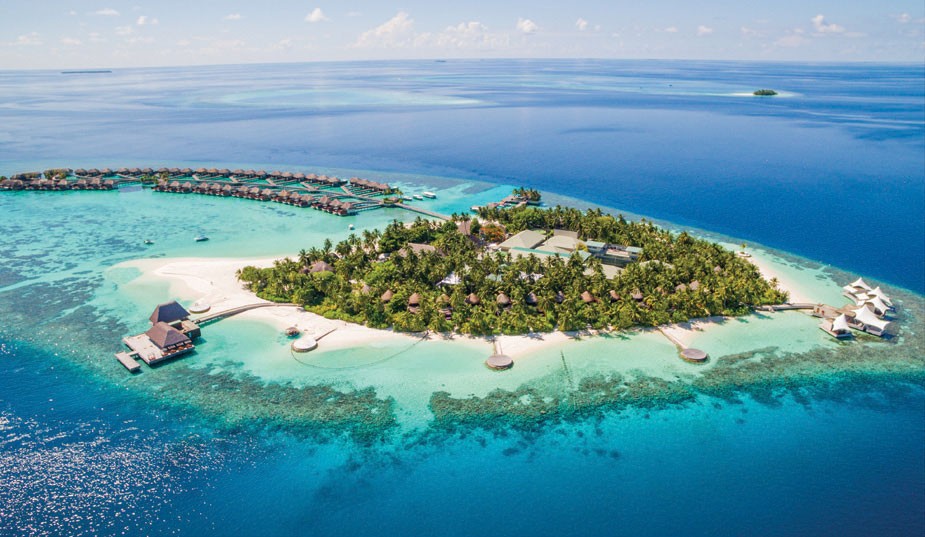 Maldives Beaches
Maldives Beaches
Maldives tourism thrives due to its stunning beaches and exclusive resorts.
The Maldives’ economy heavily relies on its luxury resorts, pristine beaches, and vibrant marine life. The nation’s focus on high-end tourism ensures a steady stream of revenue, despite its small population and limited land area.
2.2. Antigua and Barbuda: Caribbean Charm
Antigua and Barbuda, known for its beautiful beaches and resort towns, also heavily depends on tourism.
- GDP Contribution: Tourism contributed about 55% to the country’s GDP in 2022.
- Visitor Numbers: This island nation welcomed around 265,000 visitors who spent $921 million.
- Average Spend: Each visitor spent an average of $3,500.
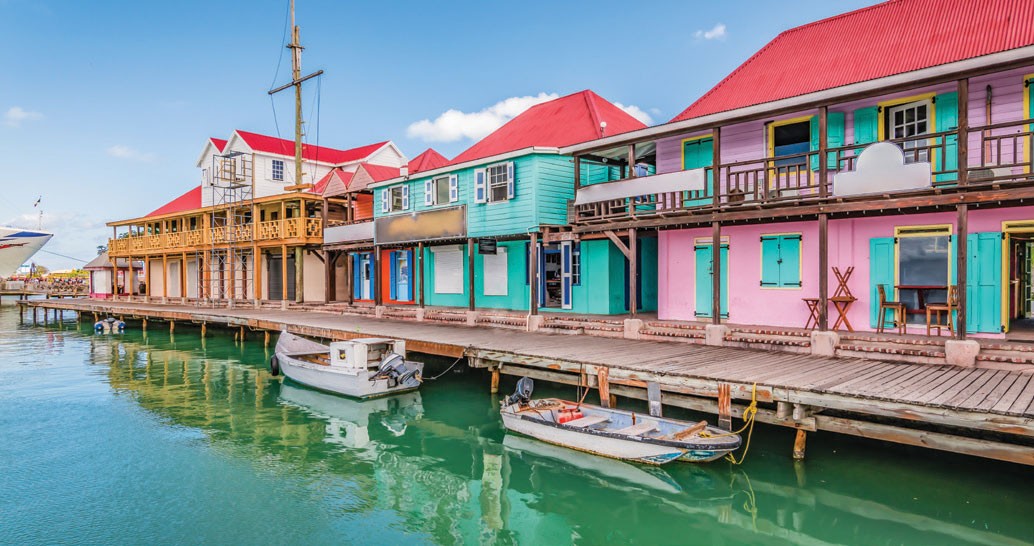 Antigua and Barbuda Beaches
Antigua and Barbuda Beaches
Antigua and Barbuda depend on tourism for their economy due to clear waters and sandy beaches.
The country’s emphasis on creating high-quality, memorable tourist experiences, including all-inclusive resorts and water sports, helps maintain its economic stability.
2.3. Seychelles: A Tropical Haven
The Seychelles, with its stunning biodiversity and exclusive island retreats, thrives on tourism.
- GDP Contribution: In 2022, tourism made up 23.1% of the Seychelles’ GDP.
- Visitor Numbers: Around 332,000 tourists visited the Seychelles, spending $932 million.
- Average Spend: The average visitor expenditure was about $2,800.
The Seychelles’ commitment to eco-tourism and luxury travel enhances its appeal, attracting high-spending tourists and supporting environmental conservation.
2.4. Jamaica: The Rhythms of Tourism
Jamaica’s vibrant culture and beautiful landscapes drive its tourism sector.
- GDP Contribution: Tourism accounted for 23.1% of Jamaica’s GDP in 2022.
- Visitor Numbers: The island welcomed 2.5 million visitors, who spent $3.7 billion.
- Average Spend: Tourists spent an average of $1,500 per visit.
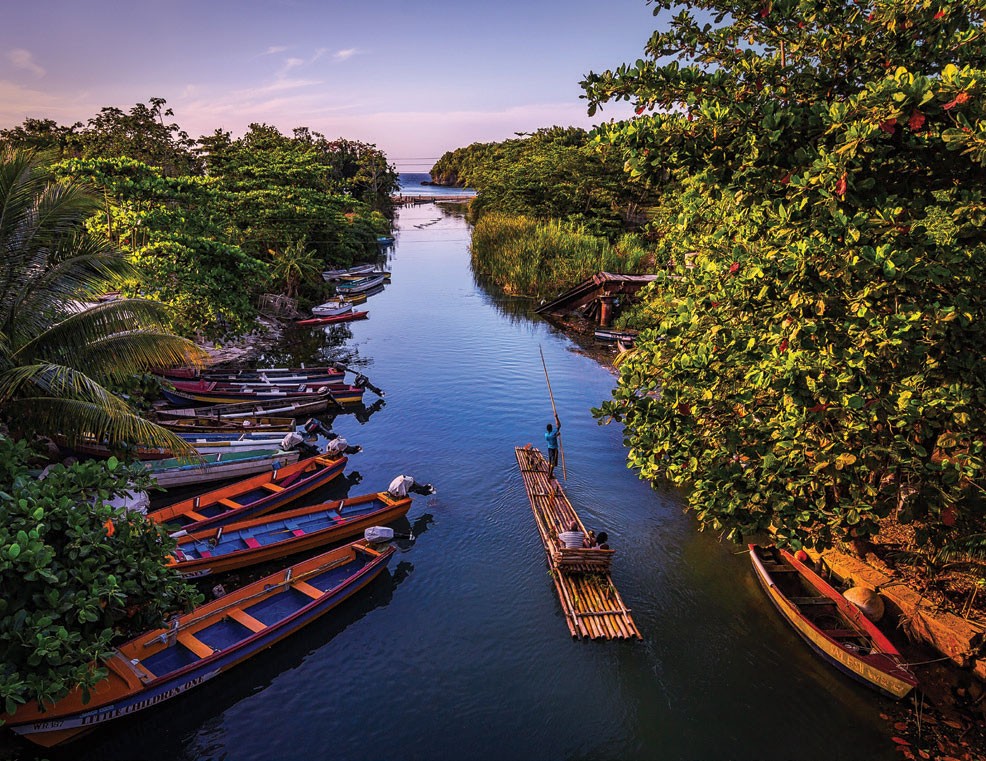 Jamaica Tourist Beach
Jamaica Tourist Beach
Jamaica’s tourism benefits from clear sea, hot sun, and white sand.
Jamaica’s blend of beaches, music, and cultural experiences attracts a diverse range of visitors, ensuring a robust tourism economy.
2.5. Belize: Adventure and Culture
Belize offers a unique mix of adventure tourism and cultural heritage.
- GDP Contribution: Tourism contributed 20.3% to Belize’s GDP in 2022.
- Visitor Numbers: The country hosted 371,000 tourists, who spent $600 million.
- Average Spend: The average spend per visitor was $1,620.
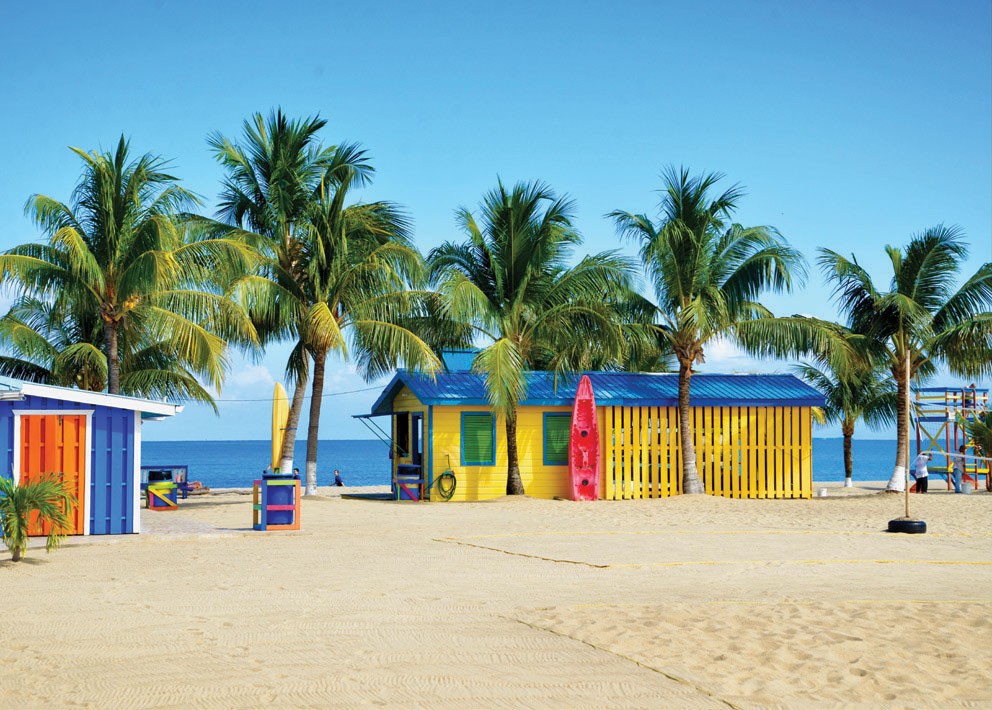 Belize Coastal Tourism
Belize Coastal Tourism
Belize relies heavily on tourism, with the economy supported by Mayan temples and the Blue Hole.
Belize’s attractions, including Mayan temples and the Blue Hole, along with its focus on sustainable tourism, drive its economic growth.
2.6. Croatia: A Mediterranean Jewel
Croatia’s stunning coastline and historical sites make it a popular tourist destination.
- GDP Contribution: Tourism contributed 18.9% to Croatia’s GDP in 2022.
- Visitor Numbers: Croatia welcomed 15.3 million visitors, who spent $13.5 billion.
- Average Spend: The average visitor spent $900.
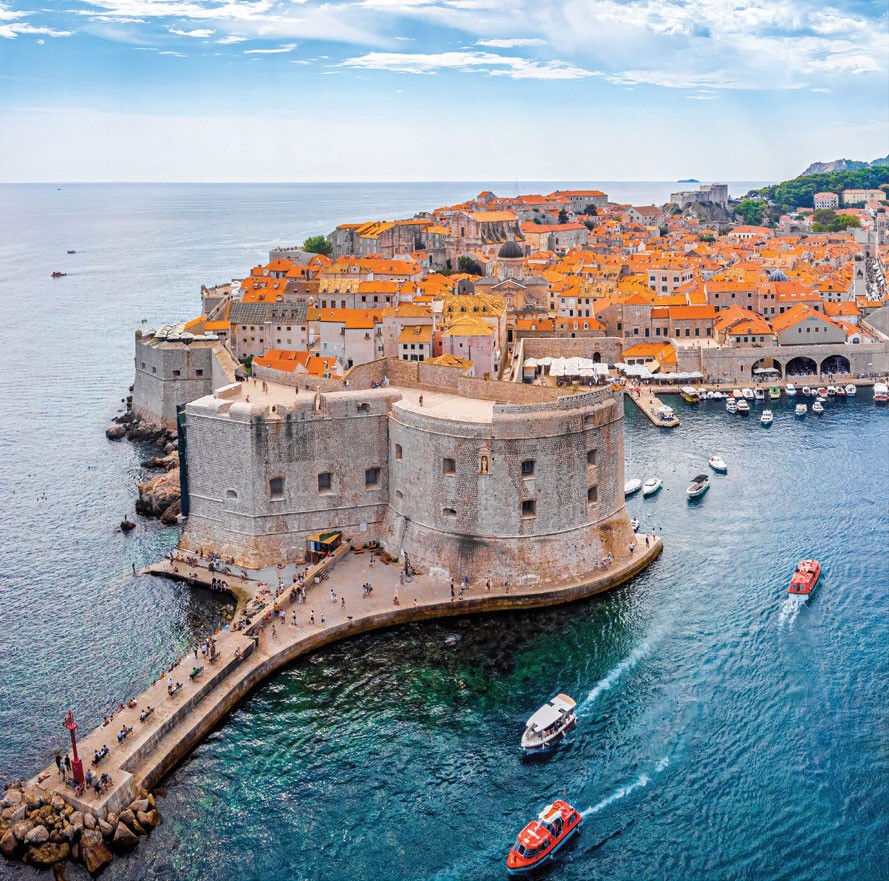 Croatia Seaside Tourism
Croatia Seaside Tourism
Croatia depends on tourism due to coastline and historical monuments.
The country’s blend of natural beauty and cultural heritage, boosted by its popularity as a filming location for shows like “Game of Thrones,” strengthens its tourism industry.
2.7. Montenegro: Balkan Beauty
Montenegro, with its dramatic landscapes and coastal towns, attracts many tourists.
- GDP Contribution: Tourism accounted for 18.2% of Montenegro’s GDP in 2022.
- Visitor Numbers: Montenegro hosted 2 million visitors, who spent $1.1 billion.
- Average Spend: The average visitor spent $550.
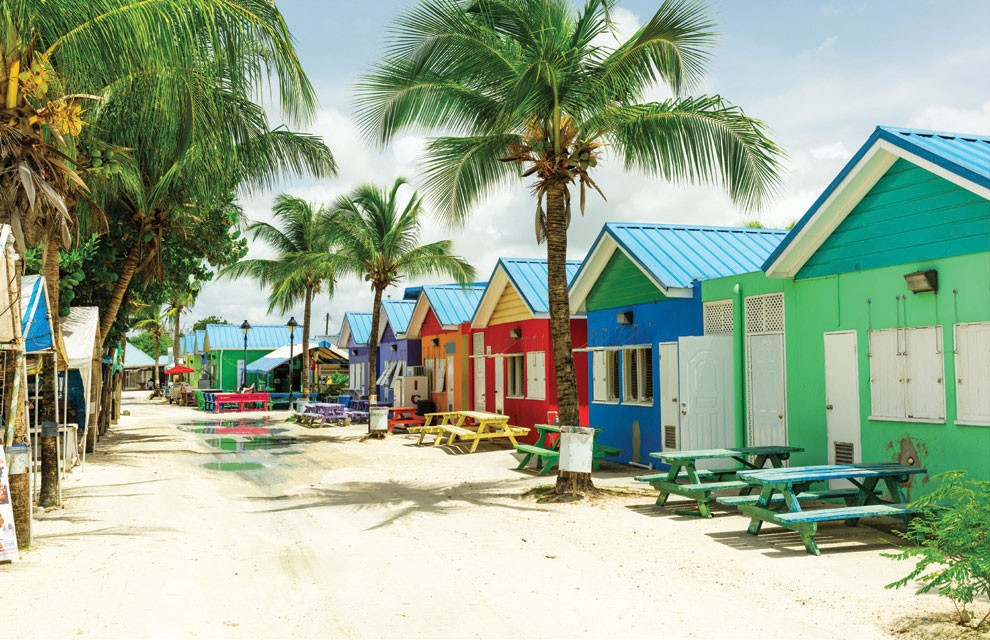 Montenegro Adriatic Sea Tourism
Montenegro Adriatic Sea Tourism
Montenegro’s economy depends on tourism due to mountain slopes and coastline.
Montenegro’s focus on preserving its historical sites and natural beauty helps sustain its tourism economy.
2.8. Barbados: A Caribbean Paradise
Barbados is another Caribbean island that relies on tourism due to its attractive vacation options.
- GDP Contribution: In 2022, revenue from foreign visitors equaled 16.2% of Barbados’s GDP.
- Visitor Numbers: 443,000 people traveled to Barbados last year, spending $929 million.
- Average Spend: The average spend per visitor was $2,100.
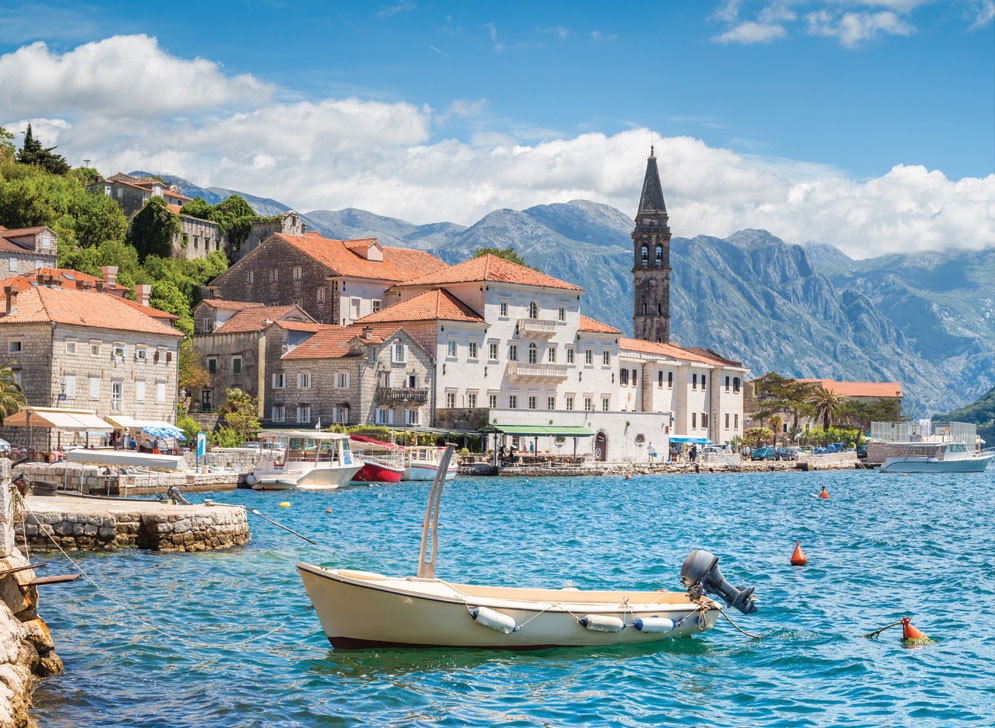 White Sand Barbados Tourism
White Sand Barbados Tourism
With its white sand and green sea, Barbados is considered the best holiday destination in the Caribbean.
2.9. Albania: An Emerging Destination
Albania has seen a growing tourism industry, attracting visitors with its beaches and historical sites.
- GDP Contribution: In 2022, revenue from foreign visitors equaled 16.2% of Albania’s GDP
- Visitor Numbers: 6.7 million people traveled to Albania last year, spending $3 billion.
- Average Spend: The average spend per visitor was $440.
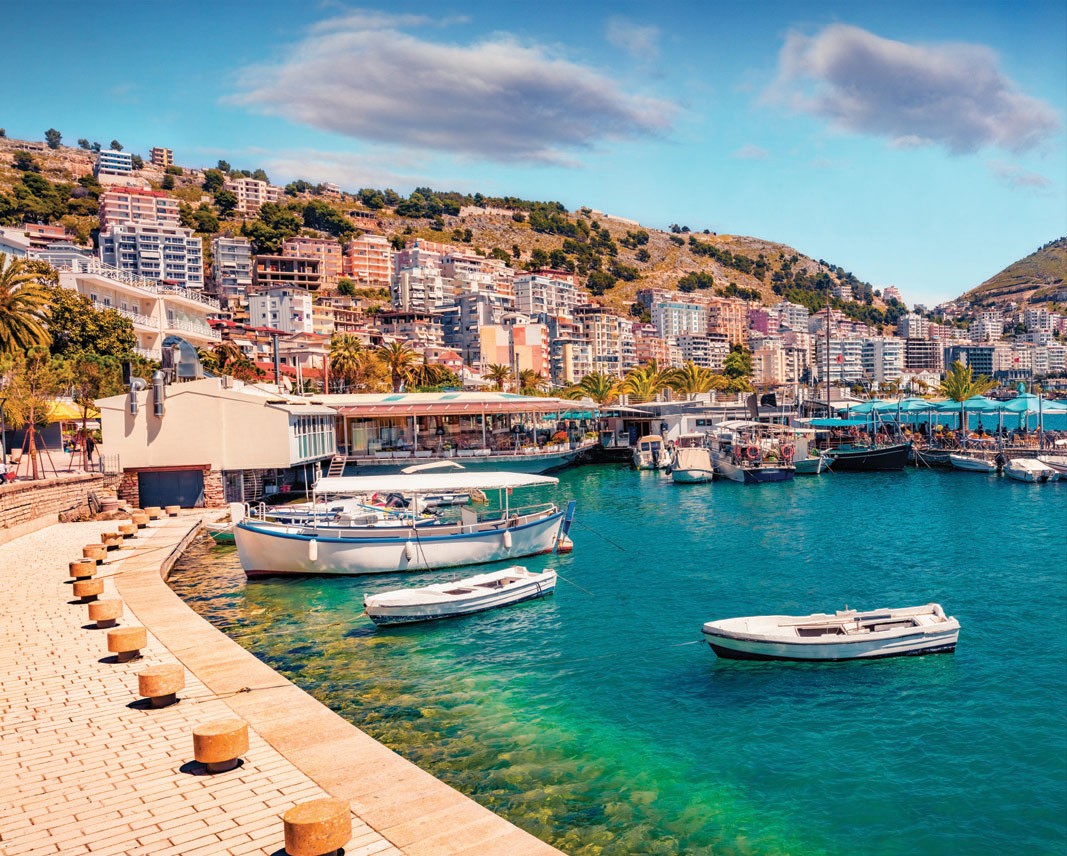 Albania Seaside Tourism
Albania Seaside Tourism
Albania relies heavily on tourism, with its white sand and clean water beaches.
2.10. Fiji: Island Dreams
Fiji’s economy thrives on its stunning beaches and warm hospitality.
- GDP Contribution: In 2022, revenue from foreign visitors equaled 14.33% of Fiji’s GDP.
- Visitor Numbers: 636,000 people traveled to Fiji last year, spending $700 million.
- Average Spend: The average spend per visitor was $1,100.
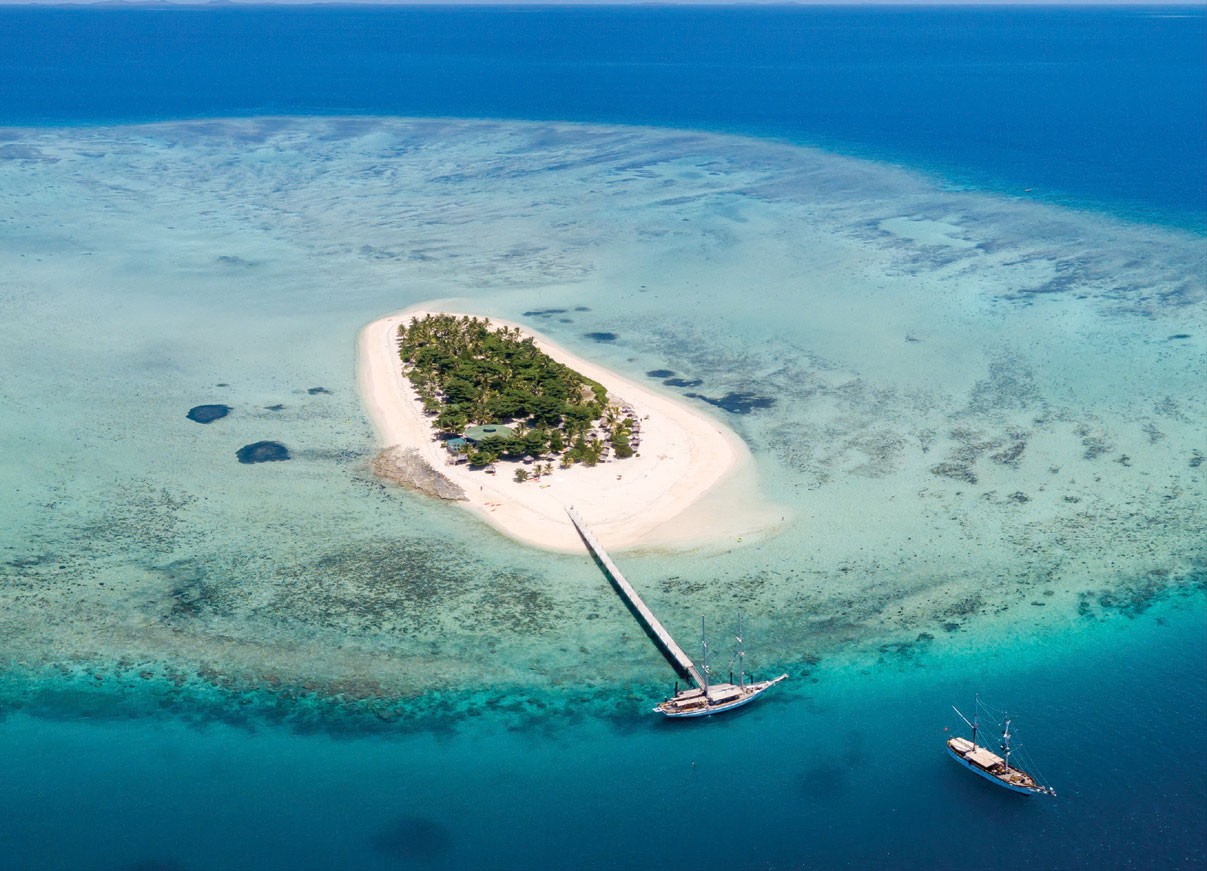 White Sand Fiji Tourism
White Sand Fiji Tourism
Fiji’s beaches and tropical forests make its tourism a key sector.
3. Factors Influencing Tourism Dependency
Several factors contribute to a country’s reliance on tourism. Understanding these elements provides insight into why some nations are more dependent on tourist revenue than others.
3.1. Natural Resources and Attractions
Countries with abundant natural resources, such as beaches, mountains, and unique ecosystems, often attract a large number of tourists. For instance, island nations like the Maldives and Seychelles boast pristine beaches and vibrant marine life, making them prime tourist destinations.
3.2. Cultural and Historical Significance
Nations with rich cultural heritage and historical sites tend to draw tourists interested in exploring their past. For example, Croatia’s historical monuments and architecture, including the Old Town of Dubrovnik, attract millions of visitors annually.
3.3. Economic Structure
Smaller economies with underdeveloped industrial or agricultural sectors often rely heavily on tourism. These countries may lack diverse revenue streams, making tourism a critical source of income and employment.
3.4. Political Stability and Safety
Political stability and safety are crucial for attracting tourists. Countries with stable governance and low crime rates are more likely to be perceived as safe destinations, encouraging higher tourist arrivals.
3.5. Infrastructure and Accessibility
Well-developed infrastructure, including airports, roads, and accommodation facilities, is essential for supporting tourism. Accessibility, both in terms of international flights and local transportation, plays a significant role in attracting tourists.
4. The Role of Sustainable Tourism
Sustainable tourism is increasingly important for countries that rely heavily on the industry. It involves managing tourism in a way that minimizes negative impacts on the environment and local communities while maximizing economic benefits.
4.1. Environmental Preservation
Sustainable tourism practices help preserve natural resources and ecosystems, ensuring that tourist destinations remain attractive for future generations. This includes measures such as reducing waste, conserving water, and protecting biodiversity.
4.2. Community Involvement
Engaging local communities in tourism planning and development ensures that they benefit from the industry. This can involve providing employment opportunities, supporting local businesses, and promoting cultural preservation.
4.3. Economic Viability
Sustainable tourism aims to ensure the long-term economic viability of the industry. This includes diversifying tourism products, attracting high-spending tourists, and promoting responsible consumption.
5. Exploring Tourism Opportunities in Hanoi, Vietnam with SIXT.VN
While the aforementioned countries are highly dependent on tourism, other destinations like Hanoi, Vietnam, offer unique and growing tourism opportunities. SIXT.VN is your ideal partner for exploring Hanoi, providing a range of services to enhance your travel experience.
5.1. Why Visit Hanoi?
Hanoi, the capital of Vietnam, is a city steeped in history and culture. It boasts a unique blend of traditional charm and modern development, making it an attractive destination for tourists.
- Historical Sites: Explore ancient temples, pagodas, and the well-preserved Old Quarter.
- Cultural Experiences: Enjoy traditional water puppet shows, bustling markets, and delicious street food.
- Natural Beauty: Discover serene lakes, lush parks, and nearby natural attractions like Ha Long Bay.
5.2. How SIXT.VN Enhances Your Hanoi Experience
SIXT.VN offers a comprehensive range of services to make your trip to Hanoi seamless and enjoyable.
- Airport Transfers: Start your trip stress-free with reliable and comfortable airport transfer services. Our professional drivers will ensure you reach your destination safely and on time.
- Hotel Booking: Choose from a wide selection of hotels to suit your budget and preferences. SIXT.VN provides options ranging from luxurious accommodations to cozy boutique hotels.
- Tour Packages: Discover the best of Hanoi with our expertly curated tour packages. Whether you’re interested in historical tours, culinary adventures, or cultural experiences, we have something for everyone.
- Car Rentals: Enjoy the freedom to explore Hanoi and its surroundings at your own pace with our car rental services. We offer a variety of vehicles to meet your needs, from compact cars to spacious SUVs.
- Flight Booking: Find the best deals on flights to Hanoi with our easy-to-use flight booking platform. We partner with leading airlines to offer you a wide range of options at competitive prices.
5.3. Booking Your Hanoi Adventure with SIXT.VN: A Step-by-Step Guide
Booking your services with SIXT.VN is simple and straightforward. Follow these steps to plan your Hanoi adventure:
- Visit SIXT.VN: Navigate to our website to explore our range of services.
- Select Your Services: Choose the services you need, such as airport transfers, hotel booking, or tour packages.
- Enter Your Details: Provide your travel dates, destination, and any specific preferences.
- Review Your Options: Browse the available options and select the ones that best suit your needs.
- Confirm Your Booking: Review your booking details and confirm your reservation.
- Enjoy Your Trip: Relax and enjoy your Hanoi adventure, knowing that SIXT.VN has taken care of all the details.
5.4. Why Choose SIXT.VN for Your Hanoi Travel Needs?
- Convenience: Book all your travel services in one place, saving time and effort.
- Reliability: Count on our professional and dependable services to ensure a smooth and stress-free trip.
- Quality: Enjoy high-quality accommodations, transportation, and tour experiences.
- Support: Benefit from our dedicated customer support team, available to assist you with any questions or concerns.
5.5. Essential Travel Tips for Visiting Hanoi
To make the most of your trip to Hanoi, consider these essential travel tips:
- Visa Requirements: Check visa requirements and ensure you have the necessary documents before traveling.
- Currency: The local currency is the Vietnamese Dong (VND). It’s advisable to carry some cash, although credit cards are accepted in many establishments.
- Transportation: Utilize local transportation options like taxis, cyclos, and ride-hailing apps.
- Cultural Etiquette: Respect local customs and traditions. Dress modestly when visiting religious sites and be mindful of local etiquette.
- Health and Safety: Consult your doctor regarding necessary vaccinations and health precautions. Ensure you have travel insurance to cover any unexpected medical expenses.
5.6. Must-See Attractions in Hanoi
- Hoan Kiem Lake: A picturesque lake in the heart of Hanoi, perfect for a leisurely stroll.
- Old Quarter: A historic district filled with narrow streets, traditional shops, and delicious street food.
- Temple of Literature: Vietnam’s first university, showcasing traditional Vietnamese architecture.
- Ho Chi Minh Mausoleum: A solemn monument honoring the founding father of Vietnam.
- Water Puppet Theatre: Enjoy a traditional water puppet show, a unique art form that dates back centuries.
6. Challenges and Opportunities in Tourism-Dependent Economies
While tourism can be a significant economic driver, countries heavily reliant on the industry also face unique challenges and opportunities.
6.1. Economic Vulnerability
Over-reliance on tourism can make economies vulnerable to external shocks, such as economic downturns, natural disasters, and global health crises. For example, the COVID-19 pandemic had a devastating impact on tourism-dependent countries, leading to significant economic losses.
6.2. Environmental Impact
Tourism can contribute to environmental degradation, including pollution, deforestation, and loss of biodiversity. Unsustainable tourism practices can damage natural resources and ecosystems, undermining the long-term viability of the industry.
6.3. Socio-Cultural Impacts
Tourism can also have socio-cultural impacts, such as the commodification of culture, displacement of local communities, and increased social inequality. It’s essential to manage tourism in a way that respects local cultures and promotes community well-being.
6.4. Diversification Strategies
To mitigate the risks associated with tourism dependency, countries can pursue diversification strategies. This includes developing alternative industries, such as manufacturing, agriculture, and technology, to create more resilient and balanced economies.
6.5. Innovation in Tourism
Innovation in tourism can also create new opportunities for economic growth. This includes developing niche tourism products, such as eco-tourism, adventure tourism, and cultural tourism, to attract a wider range of visitors and increase revenue.
7. Future Trends in Tourism
The tourism industry is constantly evolving, driven by changing consumer preferences, technological advancements, and global trends. Understanding these trends is crucial for countries that rely on tourism to remain competitive and sustainable.
7.1. Rise of Eco-Tourism
Eco-tourism is becoming increasingly popular as travelers seek more sustainable and responsible travel options. This includes activities such as wildlife watching, hiking, and cultural immersion, with a focus on minimizing environmental impact and supporting local communities.
7.2. Digitalization of Tourism
Digital technology is transforming the tourism industry, with online booking platforms, mobile apps, and social media playing a key role in shaping travel experiences. Countries that embrace digital innovation can attract more tech-savvy travelers and enhance their competitiveness.
7.3. Personalized Travel Experiences
Travelers are increasingly seeking personalized and customized travel experiences. This includes tailored itineraries, unique accommodations, and authentic cultural encounters. Countries that can offer personalized travel options are more likely to attract high-spending tourists.
7.4. Health and Wellness Tourism
Health and wellness tourism is a growing trend, with travelers seeking destinations that offer relaxation, rejuvenation, and medical treatments. This includes activities such as yoga retreats, spa treatments, and medical tourism packages.
7.5. Experiential Travel
Experiential travel focuses on immersive and authentic cultural experiences. Travelers want to engage with local communities, learn about their traditions, and participate in unique activities. Countries that can offer authentic cultural experiences are well-positioned to attract experiential travelers.
8. The Importance of Policy and Governance
Effective policy and governance are essential for managing tourism in a sustainable and equitable manner. This includes establishing clear regulatory frameworks, promoting responsible tourism practices, and ensuring that tourism benefits local communities.
8.1. Regulatory Frameworks
Clear regulatory frameworks are needed to ensure that tourism operates in a sustainable and responsible manner. This includes regulations related to environmental protection, land use, and labor standards.
8.2. Stakeholder Collaboration
Collaboration among government agencies, tourism businesses, local communities, and non-governmental organizations is crucial for effective tourism management. This includes engaging stakeholders in tourism planning and decision-making processes.
8.3. Monitoring and Evaluation
Regular monitoring and evaluation are needed to assess the impacts of tourism and identify areas for improvement. This includes collecting data on tourist arrivals, expenditure, and environmental indicators, as well as conducting surveys to gauge tourist satisfaction and community attitudes.
9. Conclusion: Balancing Dependency and Sustainability
While tourism can be a powerful engine for economic growth, countries that rely heavily on the industry must strive to balance economic benefits with environmental sustainability and social equity. By adopting sustainable tourism practices, diversifying their economies, and investing in innovation, these countries can ensure that tourism remains a viable and beneficial industry for generations to come.
Are you ready to explore the vibrant culture and rich history of Hanoi? Let SIXT.VN be your guide. We offer a comprehensive range of services, including airport transfers, hotel booking, tour packages, car rentals, and flight booking, to make your trip seamless and unforgettable. Visit SIXT.VN today and start planning your Hanoi adventure. Let us take care of the details, so you can focus on creating lasting memories. Contact us at Address: 260 Cau Giay, Hanoi, Vietnam. Hotline/Whatsapp: +84 986 244 358 or visit our Website: SIXT.VN.
10. FAQs About Countries Reliant on Tourism
10.1. Which Caribbean island relies most on tourism?
Antigua and Barbuda are among the Caribbean islands that rely most on tourism, with tourism contributing approximately 55% to their GDP in 2022.
10.2. What are the benefits of tourism for a country?
Tourism provides numerous benefits, including revenue generation, job creation, infrastructure development, cultural preservation, and economic diversification.
10.3. How can countries reduce their dependence on tourism?
Countries can reduce their dependence on tourism by diversifying their economies, developing alternative industries, promoting sustainable tourism practices, and investing in innovation.
10.4. What is sustainable tourism?
Sustainable tourism involves managing tourism in a way that minimizes negative impacts on the environment and local communities while maximizing economic benefits.
10.5. What are some emerging trends in the tourism industry?
Emerging trends in the tourism industry include the rise of eco-tourism, digitalization of tourism, personalized travel experiences, health and wellness tourism, and experiential travel.
10.6. How does political stability affect tourism?
Political stability is crucial for attracting tourists, as countries with stable governance and low crime rates are more likely to be perceived as safe destinations.
10.7. What role does infrastructure play in tourism development?
Well-developed infrastructure, including airports, roads, and accommodation facilities, is essential for supporting tourism and attracting visitors.
10.8. Why is community involvement important in tourism?
Engaging local communities in tourism planning and development ensures that they benefit from the industry and promotes cultural preservation and community well-being.
10.9. What are the challenges of over-reliance on tourism?
The challenges of over-reliance on tourism include economic vulnerability, environmental impact, and socio-cultural impacts, such as the commodification of culture and displacement of local communities.
10.10. How can SIXT.VN help with travel to Hanoi?
SIXT.VN offers a comprehensive range of services, including airport transfers, hotel booking, tour packages, car rentals, and flight booking, to make your trip to Hanoi seamless and unforgettable.



